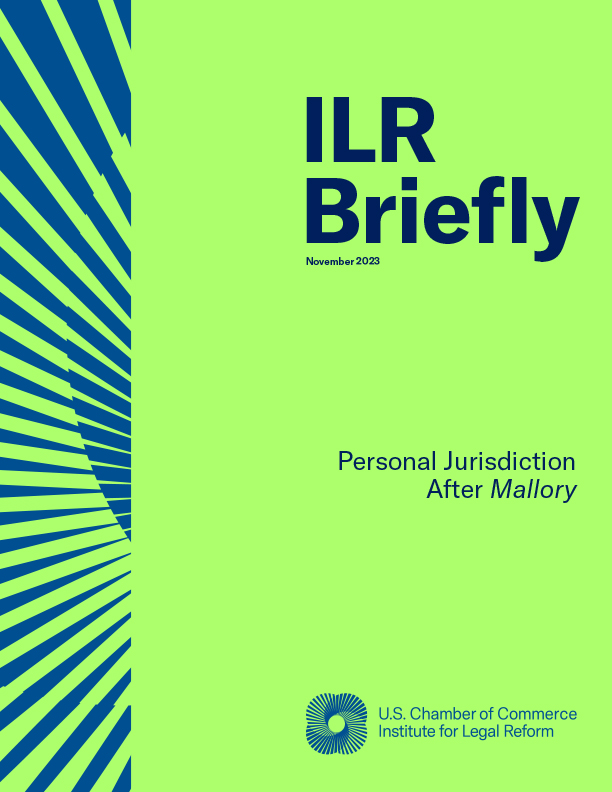A little-known U.S. Supreme Court decision could have major ramifications for American businesses that want to do business in different states. Mallory v. Norfolk Southern involved an employee who filed a lawsuit in Pennsylvania against his former employer, even though he didn’t live in the state, the employer was headquartered in Virginia, and the alleged harm happened in Ohio and Virginia. That was only possible because of Pennsylvania’s “consent-by-registration” rule—a unique statute that explicitly requires companies to agree to general personal jurisdiction to do business in the Keystone State.
At issue before the Supreme Court was whether the Pennsylvania law violated the Due Process Clause of the Fourteenth Amendment. In a 5-4 decision, the Court sided with the plaintiff under the highly specific context of the facts of Mallory. But a new ILR Briefly: Personal Jurisdiction After Mallory explains how plaintiffs’ lawyers are trying to expand that decision by encouraging state legislatures and courts to adopt a broader interpretation of the Mallory decision. In other words, they want consent by registration to be the law in every state. If that happens, there will be an increase in what’s known as forum shopping.
Forum shopping is an often-used plaintiffs’ lawyer tool where they “shop” for jurisdictions to file cases in that are known for giving out large jury verdicts, even if the plaintiff or the alleged harm has no connection there. Pennsylvania is a notorious magnet for forum shopping.
Personal Jurisdiction After Mallory describes the negative effects that the Mallory decision may have on any company that tries to do business across state lines and why lawmakers and courts should reject abusive forum shopping.
ILR’s research highlights many of the adverse consequences that may follow from attempts to adopt a Pennsylvania-type law elsewhere, resulting in:
- Companies being deterred from expanding their business across state lines for fear of being sued virtually anywhere.
- Overcrowding already over-burdened and under-funded state court systems with new cases that have nothing to do with the state itself.
- Unreasonable uncertainty and risk for smaller businesses.
Adopting new consent-by-registration laws would only add lawsuits that have no connection to the state to already backlogged court systems, creating more problems than solutions and delaying justice for state residents. The plaintiffs’ bar push to expand Mallory is simply a ploy to encourage harmful forum shopping that would hurt American businesses.



